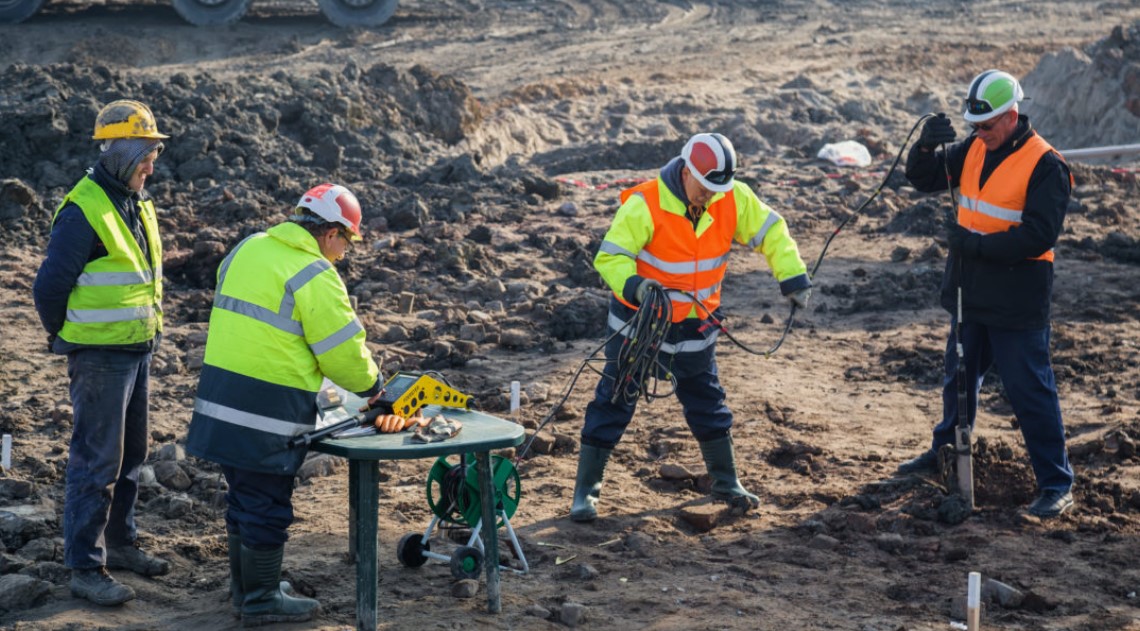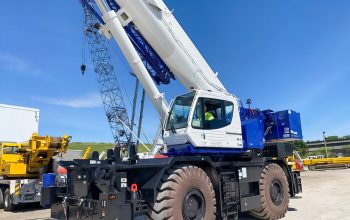Geotechnical engineering has become a pivotal discipline in the UAE, where ambitious architectural marvels and infrastructure projects redefine skylines. Geotechnical engineering companies in UAE provide crucial insights into the soil and rock mechanics underlying construction sites, guiding the development of secure foundations and resilient structures. This blog delves into the significance of geotechnical engineering, the cutting-edge technologies transforming the field, and the trends shaping the future of infrastructure in the UAE.
The Role of Geotechnical Engineering in Modern Construction
Geotechnical engineering lies at the heart of any construction project. It involves analyzing ground conditions to design stable foundations and prevent structural failure. In regions like the UAE, where environmental conditions are challenging—such as extreme temperatures, coastal environments, and diverse soil compositions—geotechnical engineering companies play an instrumental role.
A comprehensive geotechnical investigation assesses various factors, including soil strength, groundwater levels, and slope stability. For instance, developing the world’s tallest buildings in Dubai necessitated intricate soil testing and engineering to withstand the weight and environmental factors such as seismic activity and wind loads. Engineers can customize foundation types by understanding the underlying geological makeup, like deep foundations for skyscrapers that transfer loads to deeper, stable soil layers.

Innovative Techniques and Technologies in Geotechnical Engineering
Technological advancements are rapidly transforming geotechnical engineering practices, particularly in the UAE, where the scale and complexity of projects demand innovation. Some of the notable advancements include:
3D Geotechnical Modeling
Advanced software allows geotechnical engineers to create detailed 3D models of subsurface conditions. These models accurately represent soil layers, groundwater tables, and other geotechnical features, enabling more accurate foundation designs.
Borehole Testing with Real-Time Data Analysis
Modern borehole testing equipment now includes real-time data capture and analysis, allowing engineers to make on-site adjustments quickly. This is especially useful in high-pressure projects where time and accuracy are critical.
Remote Sensing and Drone Surveys
Geotechnical surveys are increasingly using drones equipped with remote sensing equipment. The drones quickly and thoroughly survey the site, and the results are reviewed to identify areas that need further research.
Predictive analysis combined with artificial intelligence (AI)
Artificial Intelligence (AI) applications in geotechnical engineering facilitate real-time risk assessment and decision-making by processing large data sets to forecast soil behavior under varied conditions.
The UAE’s large engineering projects—such as artificial islands and coastal developments—rely on technological innovations to properly evaluate and reduce geological risks. By incorporating technology, the UAE’s geotechnical engineering firms are improving project efficiency, sustainability, and safety.
The Growing Demand for Geotechnical Engineering in UAE’s Infrastructure Boom
The UAE has become synonymous with rapid urbanization and monumental engineering feats. According to a 2023 report by the UAE Construction Council, the construction industry is expected to grow by 4.9% annually, with significant contributions from geotechnical services, especially in cities like Dubai, Abu Dhabi, and Sharjah. This growth reflects a commitment to building resilient, future-proof infrastructure—a goal achievable only through meticulous geotechnical investigation.
Geotechnical companies in the UAE also cater to sectors beyond traditional construction, including oil and gas, renewable energy, and transportation. For example, offshore drilling operations require precise seabed assessments to ensure oil rigs’ safe installation and operation. Similarly, renewable energy projects like wind turbines and solar farms need stable ground conditions to maximize efficiency and lifespan.

Addressing Environmental Challenges through Geotechnical Engineering
The UAE’s harsh climate and proximity to the coast pose unique challenges for construction. Geotechnical engineers must address these challenges through site-specific solutions, such as:
Corrosion-Resistant Foundations
Coastal environments expose structures to saltwater corrosion, impacting their longevity. Geotechnical engineers recommend materials and techniques to resist corrosion, ensuring sustainable structures.
Earthquake and Seismic Preparedness
Although the UAE is not in a high-risk seismic zone, fault lines in nearby regions have led to earthquake-resistant measures in major structures. Through geotechnical assessments, companies can predict ground response to seismic activity and design structures accordingly.
Water Management
The high groundwater tables in some parts of the UAE necessitate effective dewatering systems to prevent flooding and ensure foundation stability.
Geotechnical engineering companies in the UAE prioritize these environmental considerations, blending them with technical expertise to create structures that withstand local conditions.
Trends Shaping Geotechnical Engineering in the UAE
Several trends are currently shaping the future of geotechnical engineering to improve safety, cost-efficiency, and environmental stewardship:
Sustainable Engineering Practices
With the UAE’s push toward sustainability, there is a rising demand for eco-friendly geotechnical solutions. These include bio-engineered soil stabilization, which uses natural vegetation to enhance soil stability, and low-impact dewatering systems that protect local ecosystems.
Data-Driven Engineering
The role of big data and predictive analytics is expanding in geotechnical engineering, allowing companies to make highly informed decisions that reduce risks and streamline processes.
Increased Focus on Coastal and Marine Engineering
As the UAE develops more coastal projects, geotechnical companies focus on marine engineering, which requires specialized knowledge of seabed conditions and coastal erosion management.
According to industry analysts, driven by these new trends, investments in geotechnical services in the Middle East are expected to increase by approximately 35% by 2030. Geotechnical engineering companies in the UAE are thus poised to play a critical role in the country’s ambitious future development plans.
Conclusion
Geotechnical engineering has become essential to the UAE’s construction and infrastructure landscape. As the need for cutting-edge and environmentally friendly construction techniques grows, geotechnical engineering firms in the United Arab Emirates are responding with creative solutions that tackle the area’s particular environmental problems.
Large-scale building projects benefit greatly from the discipline’s emphasis on environmental adaptability, groundwater management, and soil and rock studies. Geotechnical engineering is revolutionizing the design and construction of structures in the United Arab Emirates by utilizing data-driven methodologies, innovative technology, and sustainable practices. Developers can invest in the future of development by collaborating with respectable geotechnical engineering firms, which assure regulatory compliance and resilience against environmental issues.

Cyclist, follower of Christ, ukulelist, Mad Men fan and Guest speaker. Operating at the fulcrum of aesthetics and elegance to craft meaningful ideas that endure. I work with Fortune 500 companies and startups.



